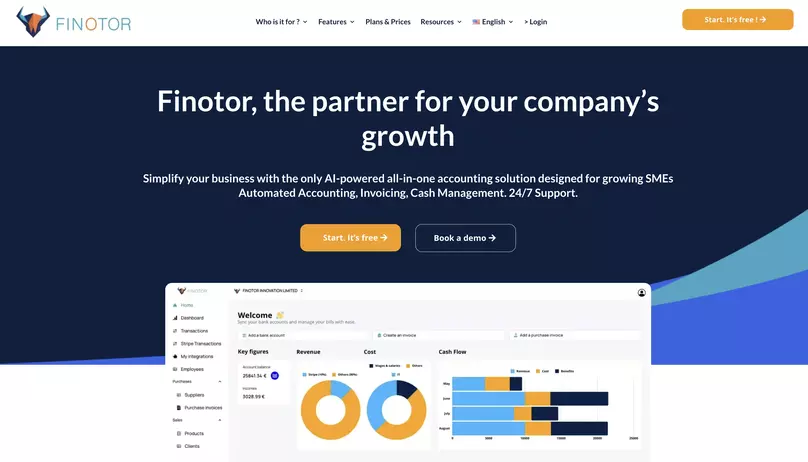Contents
The difference between general accounting and cost accounting lies in their respective functions in recording and processing financial information. General accounting focuses on keeping track of a company’s financial transactions to create basic financial statements like the balance sheet, income statement, and cash flow statement. Cost accounting, on the other hand, is more specific and deals with analyzing costs related to production activities such as labor, materials, overheads, etc., aiming to provide valuable insights into product costing and pricing decisions.
Both forms of accounting ultimately serve different purposes but work hand-in-hand to help businesses make informed decisions. It is interesting to note that both types of accounting are essential for any organization’s smooth operation.
According to Investopedia, “cost accounting provides valuable data that management accountants use to control the making of products and guides the decision-making process.” In contrast, “general accountants aim primarily at providing a clear picture of where the company stands financially.”
Why did the accountant cross the road? To get to the other side of the ledger, of course.
Let’s look in detail at the difference between general accounting and cost accounting !
General Accounting
To get a clear understanding of the fundamental concepts involved in general accounting, the definition of general accounting along with its objectives, functions, and techniques used in general accounting are introduced in this section. By exploring these sub-sections, you will gain a solid grasp of the key principles and practices that lie at the heart of general accounting.
Definition of General Accounting
General Accounting is a crucial part of an organization’s financial operations. It involves recording, summarizing, and analyzing all financial transactions within an organization. This process ensures that financial statements are accurate and comply with industry standards. General Accounting also involves the reconciling of accounts, preparing tax returns, and managing various financial reports.
By utilizing accounting principles and technology, General Accounting provides organizations with insight into their overall financial health. The analysis of this information helps to identify trends in sales and expenses as well as pinpoint areas for cost-cutting or investment opportunities.
One unique aspect of General Accounting is its importance in regulatory compliance. Proper accounting practices ensure that a company’s financial records are accurate and transparent, which is essential for maintaining the trust of stakeholders such as investors, creditors, and regulatory bodies.
According to Forbes, “accounting departments are no longer just essential elements of businesses; they are now strategic partners whose help is required in every critical business decision.” Therefore, proper implementation of General Accounting practices is critical for the success and sustainability of any organization.
Objectives of General Accounting: Because we all know the best way to have fun is by balancing our books.
Objectives of General Accounting
General Accounting aims to record, classify and interpret financial transactions. It also helps in providing useful information to internal and external stakeholders for decision-making purposes. By leveraging the power of financial accounting principles, General Accounting seeks to enable management with an understanding of their firm’s economic position through accurate financial statements.
Furthermore, General Accounting plays a vital role in tracking expenses, managing budgets and preventing fraud. Moreover, it helps in compliance with tax regulations as well as supporting audits by providing credible financial records. In summary, its main goal is to communicate trusted information about a company’s performance.
As technology advances, it is recommended that businesses adopt the use of robust accounting software systems to streamline their accounting processes. Another suggestion is hiring skilled professionals capable of handling financial records accurately. Overall, a high-quality General Accounting system not only facilitates daily operations but also supports informed decision-making by identifying cost-saving opportunities and improving earnings margins.
General Accounting – because keeping track of your finances is like playing a game of Tetris, except the stakes are much higher.
Functions of General Accounting
General Accounting serves various purposes in a business such as analyzing financial data and preparing financial records. It also helps to measure the performance of the organization against set goals and objectives. The process involves recording, classifying, and summarizing transactions to provide accurate financial statements.
Moreover, General Accounting facilitates the interpretation of data by providing useful information that helps in decision-making processes. Financial reports such as balance sheet, income statement, and cash flow statement are provided to top management for effective planning of future projects. Additionally, it ensures compliance with legal requirements while managing taxation and auditing concerns.
Techniques used in General Accounting – because sometimes you need more than just a calculator and a strong stomach to face the numbers.
Techniques used in General Accounting
General Accounting involves several financial techniques to maintain accurate records, analyze business performance, and provide insights into future growth strategies. Here are some commonly used techniques in this field.
| Techniques | Description |
|---|---|
| Double-entry accounting | Recording transactions using debits and credits to ensure accuracy. |
| Accrual accounting | Recording revenue and expenses when contracts are signed, not when cash is exchanged. |
| Cost accounting | Determining the cost of manufacturing a product or providing a service. |
Apart from these techniques, General Accounting also encompasses budgeting, financial analysis, tax planning, and audit support. It’s crucial for businesses to utilize these techniques as they can help identify areas of improvement and increase profitability.
I once worked with a client who was struggling to manage their finances effectively. By analyzing their record-keeping methods, we implemented double-entry accounting and cost accounting techniques that helped them streamline their operations. With our guidance, the client was able to decrease costs by 25% within six months while experiencing a significant increase in profits.
Why do cost accountants make the best detectives? They’ll always find the missing cents.
Cost Accounting
To understand cost accounting with its objectives, functions, and techniques used, dive deep into the definition of cost accounting. This knowledge will enhance your understanding of cost accounting and its significance in the business world. The following sub-sections will be revealing the objectives, functions, and techniques used in cost accounting with examples and explanations.
Definition of Cost Accounting
Cost Accounting refers to a method of accounting that helps businesses determine the cost of producing goods or services. This process involves identifying and allocating costs incurred in producing a product or service, including direct materials, labor, and overhead expenses.
Such analysis can help manufacturers make informed decisions regarding pricing, production volume, and budgeting.
By implementing Cost Accounting methods, companies can obtain accurate information about their production costs and streamline their operations accordingly. It allows businesses to identify areas where they can reduce costs and ultimately become more profitable. For instance, by analyzing the cost of each unit produced, companies can identify inefficiencies in their production process and take corrective actions.
Cost Accounting also helps businesses establish fair prices for their products or services. By accurately determining product costs and factoring in desired profit margins, businesses can price their offerings in a way that addresses industry competition while maximizing revenue.
In today’s competitive economy, it is essential for organizations to utilize accurate costing methodologies like Cost Accounting. As such, it is an indispensable tool for any manufacturing entity seeking long-term success in the marketplace. Don’t miss out on this critical technique – Implement Cost Accounting today!
Cost accounting: because knowing how much money you’re losing is just as important as knowing how much you’re making.
Objectives of Cost Accounting
Cost accounting serves to determine, accumulate, and control the costs of production, distribution, and services. Its objectives are to provide management with information for effective decision-making, cost control and reduction, monitoring profitability, and ensuring efficient use of resources.
The primary objective is to identify the cost structure of products or services accurately. Comprehending the distinctions between total cost and unit cost is essential for evaluating different manufacturing processes or choosing an optimal process to manufacture a product. Moreover, it plays a crucial role in strategizing the pricing policy by setting suitable prices for products or services.
A significant benefit of cost accounting is improving the efficiency of business operations. It facilitates identifying redundant expenditures & optimizes production processes to achieve economies of scale resulting in reduced costs & increased productivity. Cost accounting provides accurate data on expenses incurred in each department of an organization that enables managers to evaluate individual department performance & optimize resource allocation.
History tells that Adam Smith was the first person who emphasized cost accounting ideas in his book ‘The Wealth of Nations.’ In 1904 James Lee American engineer published his work ‘Cost Accounting’ in which he described how accountants can implement this system across various industrial sectors. Today, it integrates budgeting, cost management with other managerial accounting tools as essential components for financial decision making and performance evaluation purposes.
Why did the company hire a cost accountant? To keep their expenses on track and avoid a future cost-astrophy.
Functions of Cost Accounting
Cost accounting encompasses several functions that organizations use to measure and control their expenses. It includes determining the cost of production, tracking expenses against budgeted costs, and analyzing various aspects of financial performance. Through these functions, cost accounting provides a means for managers to regulate their organization’s costs effectively.
In addition to traditional cost accounting functions, advanced technologies have expanded the scope of human intervention in this field. Automated costing systems can handle processing enormous data volumes and computations related to complex processes efficiently. Enhanced business intelligence tools provide decision-makers with comprehensive reports on manufacturing processes and supply chains’ performance.
Cost accounting aims at identifying inefficiencies within an organization’s cost structure and highlighting over- or under-performing activities to improve process efficiency while remaining competitive. To achieve these objectives, industry experts suggest implementing activity-based costing methods alongside traditional ones such as job order costing or process costing. These approaches help managers analyze profitability by attributing costs to specific products, services, customers or suppliers more accurately.
By combining different cost accounting methodologies with technological advancements, modern-day cost accountants can create value and drive better decision-making across businesses of all sizes while ensuring long-term competitiveness amidst immeasurable market uncertainties.
Cost accounting techniques:
- Job Order Costing
- Process Costing
- Activity-Based Costing
Because knowing where all your money went is just as important as blaming your accountant for it.
Techniques used in Cost Accounting
Some methods for calculating costs in accounting involve analyzing the cost of goods or services sold, budgeting and forecasting, and job order costing. Here is a table showcasing different methods used to calculate costs in accounting:
| Method | Description |
|---|---|
| Activity-based | Focuses on cost drivers to allocate indirect costs |
| Standard | Predetermined costs based on time and material |
| Marginal | Determines marginal expenses or revenue |
| Absorption | Collects all production costs to allocate overhead |
Other techniques used in cost accounting may include process costing, target costing, and variable costing. Each method is unique and can help businesses understand their expenses better. It is important to choose the right method depending on the organization’s size, type of products or services offered, and goals.
Pro Tip: Choosing the appropriate cost accounting technique can enhance decision-making processes by providing accurate financial data.
Why waste time on general accounting when you can focus on the juicy details of cost accounting? It’s like choosing between a plain sandwich and a loaded pizza.
Differences between General Accounting and Cost Accounting
To understand the differences between general accounting and cost accounting, you need to explore the focus, purpose, scope, tools, and users of each approach. In this section, we will delve into these sub-sections, which provide a comprehensive solution to distinguish between the two accounting methods.
Focus
The core distinction between General Accounting and Cost Accounting is their distinct focus. General accounting is all about maintaining accurate records of financial transactions of an organization in accordance with the set accounting principles while cost accounting focuses on determining and controlling costs associated with the production of goods or services. In other words, general accountants are more focused on creating a financial picture of an organization, while cost accountants are more concerned with analyzing the various factors that contribute to production costs.
Moreover, both types of accounting employ different methods to achieve their goals. In general accounting, accountants follow Generally Accepted Accounting Principles (GAAP) when preparing financial statements for stakeholders, whereas cost accountants rely heavily on Cost Accounting Standards (CAS) to determine expenses incurred during production. While general accounting focuses on summarizing and reporting data, cost accounting emphasizes tracking and providing detailed information on specific areas such as labor or material costs.
As a result of these differences in focus and methods used, there are some recommendations to consider when deciding which type of accounting to adopt for your business:
- It’s essential to identify organizational needs and objectives before deciding whether one requires only General Accounting or both General and Cost Accounting.
- Hiring a reliable accountant who is proficient in either form of accounting will help ensure accurate bookkeeping practices.
- Finally, regularly monitoring business performance reports from both types of accounting would enable you to make better-informed decisions regarding pricing models or budget allocation.
Find your purpose in life like cost accounting finds the purpose of each expense.”
Purpose
For a holistic financial analysis, understanding the differences between general accounting and cost accounting is crucial.
- General accounting is the process of preparing financial statements and recording transactions for external parties. The purpose is to provide an accurate picture of the company’s financial health.
- On the other hand, cost accounting involves analyzing all the expenses incurred by a business during production. It helps in identifying areas where costs can be reduced and helps in determining prices for products or services.
- While general accounting focuses on creating financial statements for lenders, shareholders, and investors; cost accounting provides insights for management through detailed reports on each product or service offered.
Cost accounting reveals how efficient a firm is at using its resources. It enables companies to recognize opportunities developing to increase profitability specific to one or more products.
Pro Tip: Businesses should focus on implementing both general accounting and cost accounting methods simultaneously to achieve optimal financial growth.
Scope it out: General Accounting sees the forest while Cost Accounting counts the trees.
Scope
To elaborate on the area of coverage for General Accounting and Cost Accounting, it is important to note that both methods are used by businesses to record and manage financial information. In the case of General Accounting, this type of accounting encompasses all the financial transactions that a business engages in, such as bookkeeping records, tax compliance and analysis of profits and losses. On the other hand, Cost Accounting primarily deals with analyzing production costs incurred by a business. For example, considering factors covered in cost accounting like labor costs, materials costs and overhead expenses.
| Scope | General Accounting | Cost Accounting |
|---|---|---|
| Coverage Area | Entire Business Transactions | Production Costs Analysis |
| Objective | Historical Transaction Analysis | Monitor & Control Costs |
| Intended Users | Internal & External Parties | Internal Management |
| Analytical Tool | Financial Statements | Reports on Production Costs |
It is worth emphasizing that while General Accounting looks at the overall financial picture for decision-making purposes, Cost Accounting specifically focuses on optimization for operational efficiency. Additionally, while both forms serve as key sources of information for different accounts within a company’s critical financial decisions – Managerial Accounts would use cost accounting methods whereas Financial Accounts would rely mainly on general accounting.
Understanding these differences between General Accounting and Cost Accounting maximizes potential profits for a business by creating an efficient cost structure capable of withstanding all levels of internal or external pressures. Don’t wait too long before implementing necessary changes in your company’s bookkeeping standards to ensure you don’t miss out on an essential opportunity to improve your bottomline profitability!
Whether you’re using a calculator or an abacus, the tools you choose won’t make up for bad accounting skills.
Tools
Accounting instruments are crucial for any organization to record, analyze and interpret various financial transactions. They are used to make informed decisions based on the data that these tools provide.
- General Accounting Tools: General accounting involves recording and analyzing all financial transactions, such as payables and receivables, cash and bank balances, payroll and taxes, general ledger preparation and reconciliations. Some of its essential instruments include balance sheets, income statements, trial balances, cash flow statements.
- Cost Accounting Tools: Cost accounting entails calculating cost-related data like production cost estimates, budget variance analysis, cost-volume-profit analysis. Some of its fundamental instruments include job order costing records, process costing sheets.
- Management Accounting Tools: Management accounting delivers management-level techniques like forecasting budgets for investment decisions or performance evaluation criteria. Essential tools in this category include profit projections reports prep.
Each tool has unique characteristics and serves different purposes. For example, general accounting tracks a company’s current financial status while cost accounting provides insight into the product’s real costs.
Business success stories typically have one thing in common – they are built on accurate and efficient accounting with the right set of tools!
Users of accounting information: sometimes they make sense, sometimes they’re just balance sheet crazy.
Users
General Accounting and Cost Accounting have different users with unique information needs. The former is more comprehensive in terms of catering to stakeholders’ needs, while the latter is used primarily by management for internal decision-making.
For General Accounting, users typically include investors, lenders, creditors, and regulators. They rely on financial statements to evaluate an organization’s performance and make informed decisions about investing or lending money. In contrast, users of Cost Accounting are usually management teams who utilize cost data to optimize business operations, such as pricing strategies and inventory control.
To understand the key differences between these two types of accounting better, let’s explore them further by looking at their potential users and their varying informational requirements in a table format:
| Users | General Accounting | Cost Accounting |
|---|---|---|
| Investors | Financial reports like income statement and balance sheets | Reports on individual product costs, variances & profitability |
| Lenders & creditors | Financial statements assessing financial health & viability | Detailed cost analysis on loan repayment capacity |
| Management | Not directly involved | Primary user for strategic decision-making |
| Regulators | Compliance with GAAP standards | Support auditing process |
It’s vital to note that while these groups may overlap in some contexts- such as management using General Accounting reports- each type of Accounting has its unique set of user requirements that cater to diverse sets of stakeholders.
Pro Tip: Understanding the differences between General Accounting and Cost Accounting can help you determine which accounting system is most beneficial for your organization based on your business objectives and partnership structures.
General Accounting keeps the business alive, but Cost Accounting keeps the accountant alive.
Importance of General Accounting and Cost Accounting
General accounting and cost accounting are two crucial aspects of business management. While general accounting deals with the company’s overall financial transactions, cost accounting concentrates on analyzing individual costs to minimize expenses and increase profits. For any business to succeed, both are essential.
General accounting helps organizations keep track of their financial records that assist in tax returns, budgeting, and forecasting future finances. Cost accounting enables companies to identify which products or services generate profits and which ones require adjustments.
In addition to these critical aspects of business management, companies must also pay close attention to overhead costs, such as rent and utilities. Overhead may seem like a small expense compared to other operating expenses but can have a significant impact on the bottom line.
According to a survey conducted by Deloitte in 2019, 82% of private companies reported that they prioritize cost reduction in their strategic planning processes. This highlights the significance of cost accounting for small businesses as much as it is crucial for larger enterprises.
Whether you’re balancing the books or calculating the cost of your mistakes, understanding the difference between general accounting and cost accounting is key to avoiding financial disaster.

Conclusion
In essence, the difference between general accounting and cost accounting lies in the purpose each serves. Whereas general accounting concerns itself with the financial record-keeping of a business as a whole, cost accounting seeks to identify and allocate specific costs associated with producing goods or services.
Cost accounting is vital for businesses that need to determine the profitability of individual products or services. By obtaining insight into product-specific expenses, businesses may make better decisions about pricing. This contrasts with general accounting, which provides an overview of a company’s overall financial health through measures such as balance sheets and income statements.
Another notable distinction between these types of accounting lies in their regulatory considerations. General accounting must comply with standard financial reporting practices, while cost accountants are called upon to ensure compliance with other regulative bodies such as those pertaining to environmental concerns.
According to Investopedia, both types of accounting are essential but appeal to different aspects of running a business.
Frequently Asked Questions
Q: What is general accounting?
A: General accounting is the process of recording, classifying, and summarizing financial transactions to provide financial statements for external users.
Q: What is cost accounting?
A: Cost accounting is the process of determining and analyzing the costs of a business to provide management with information to make more informed decisions.
Q: What is the main difference between general accounting and cost accounting?
A: The main difference is that general accounting is focused on external reporting to stakeholders while cost accounting is focused on internal decision-making.
Q: What kind of information does general accounting provide?
A: General accounting provides information such as balance sheets, income statements, and cash flow statements to external stakeholders such as investors, creditors, and regulators.
Q: What kind of information does cost accounting provide?
A: Cost accounting provides information such as product costs, profitability of products and services, and efficiency of operations to help management make better decisions.
Q: Do all businesses need both general accounting and cost accounting?
A: Yes, all businesses need to have some form of general accounting to provide financial statements for stakeholders. However, not all businesses may need to utilize cost accounting depending on their size, complexity, and decision-making needs.










